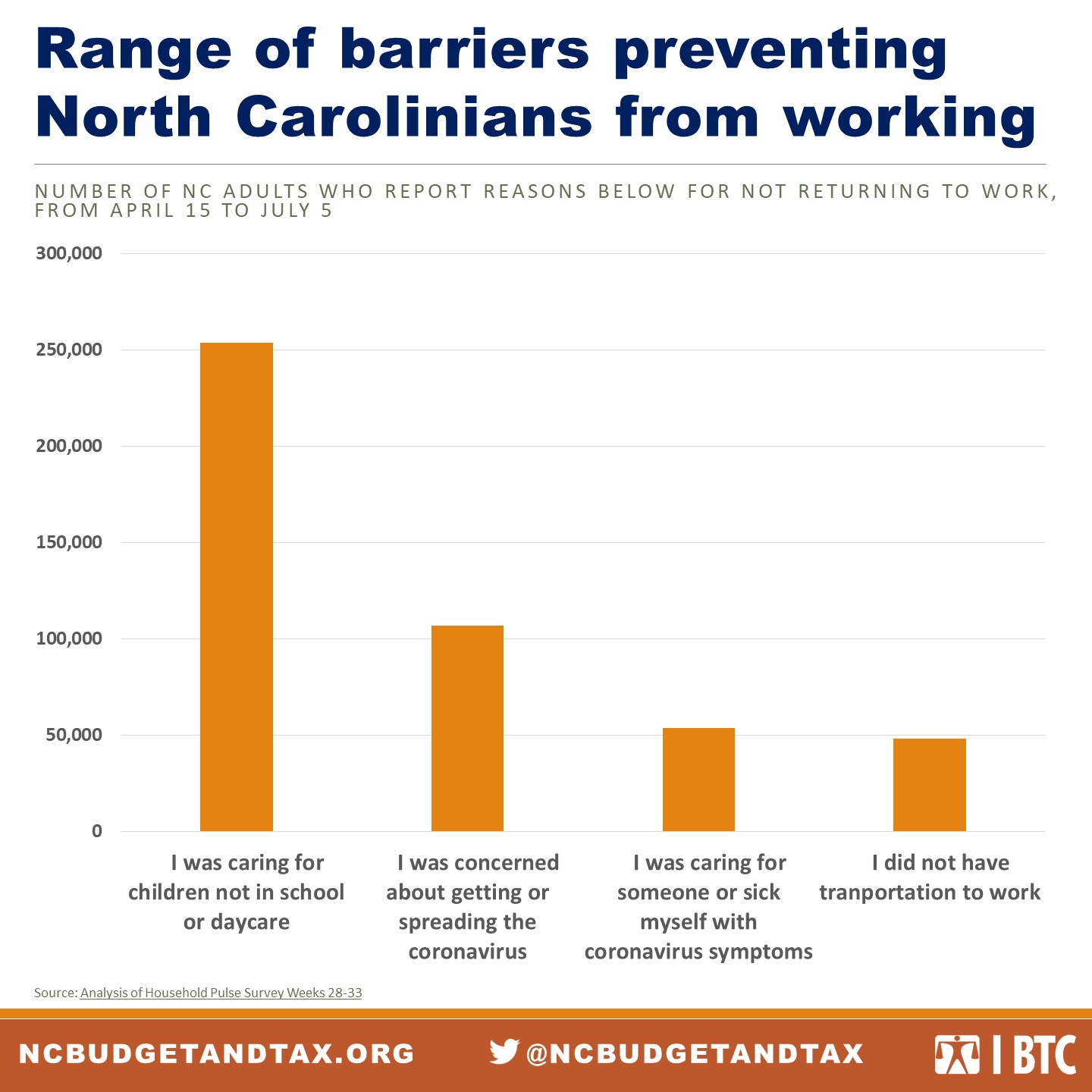As the delta variant of COVID-19 spreads, the federal eviction moratorium expires, and supplementary unemployment benefits are set to run out soon, barriers to work continue to prevent hundreds of thousands of North Carolinians from participating in the labor force. Weekly surveys conducted by the U.S. Census from April through July show a range of challenges make it hard or impossible for many North Carolinians to work, with the heaviest toll falling on communities of color due to systemic and historic barriers.

Child care is the biggest barrier, with an average of more than a quarter million North Carolinians reporting it was the primary reason they were unable to work. Around 100,000 people were not working due to concern about getting or spreading the coronavirus, 50,000 did not have transportation to get to work, and another 50,000 per week reported either experiencing coronavirus symptoms themselves or being unable to work because they were caring for someone with COVID-19.
As has been true throughout the pandemic and before, economic hardship is not evenly experienced across communities in North Carolina. While roughly one-quarte between mid-May and early July, only around 10 percent of white people in North Carolina reported having the same experience.
Persistently unequal hardship has existed throughout COVID-19, and that reality has not gone away. It is far too soon to cut off supports people need to survive and return to the labor force, particularly as the delta variant is fueling another wave of infections across North Carolina.
 Justice Circle
Justice Circle